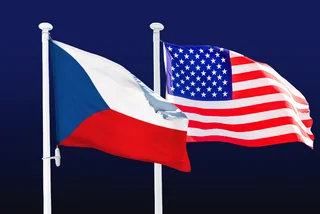The U.S. has introduced new restrictions on exporting advanced artificial intelligence (AI) chips, placing Czechia in a second-tier category with stricter regulations than many Western European countries.
This move is intended to prevent adversaries like Russia and China from obtaining cutting-edge AI technology. However, it has drawn criticism from the European Commission and raised concerns about its impact on Czechia’s technological competitiveness.
US financial news outlet Bloomberg reports that the U.S. policy divides countries into three groups. Nations like Canada, Germany, and France face minimal restrictions. Czechia, along with Austria, Poland, and Slovakia, is in a second group and is subject to tighter controls. The strictest limits apply to Russia, China, Iran, North Korea, and Venezuela.
The White House described the decision as part of a broader strategy to protect global security. “The U.S. must act decisively to lead this transition by ensuring that American technology supports the global use of AI and that advanced AI cannot be easily exploited by adversaries,” it stated. Officials warned that misuse of AI could lead to the development of weapons of mass destruction, offensive cyber operations, and mass surveillance.
The European Commission criticized the policy, calling it fragmented and warning that it could divide the EU into technological “winners” and “losers.” “We believe it is in the U.S. economic and security interest for the EU to purchase advanced AI chips from the U.S. without restrictions,” the commission said in a statement.
According to Politico, 17 EU member states, including Czechia, face limited access to AI chips, while 10 others have fewer restrictions. This disparity has sparked concerns about the EU’s technological cohesion and long-term competitiveness.
The Biden administration’s policy reflects a growing focus on aligning AI development with U.S. security and economic goals. By restricting chip sales based on both country and company criteria, the U.S. aims to strengthen alliances with “friendly” nations while preventing adversaries from advancing their AI capabilities.
In the past, the U.S. has blocked AI chip exports to China and other nations to slow their progress in artificial intelligence and military technology. In response, companies like Nvidia and Intel have created modified chips for restricted markets, retaining strong computing power but limiting features like communication speeds.
For Czechia, experts note that these new restrictions highlight the challenges of navigating a global technological landscape where access to advanced AI chips increasingly depends on geopolitical dynamics.












 Reading time: 2 minutes
Reading time: 2 minutes 

























